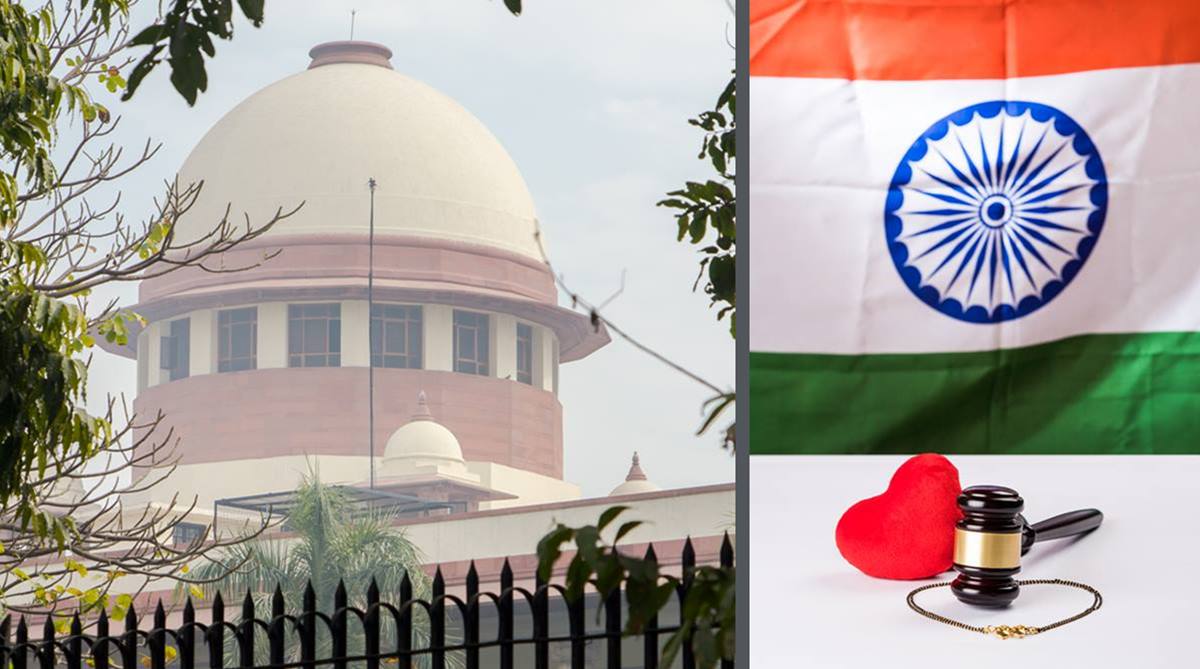The Supreme Court is likely to pronounce on September 27 its verdict on India’s adultery law (Section 497 IPC) that is seen as discriminatory as it punishes only a married man for extramarital sexual relationship with a married woman. The Centre has defended the law saying it’s essential to preserve the institution of marriage.
While reserving the verdict, a five-bench constitution bench comprising Chief Justice Dipak Misra, Justice Rohinton Nariman, Justice AM Khanwilkar, Justice DY Chandrachud and Justice Indu Malhotra had on August 8 questioned Central government’s stand on the more than 150-year-old adultery law.
“…where is the ‘collective good’ in Section 497 of IPC?” the court had asked.
The apex court is hearing a petition filed by one Joseph Shine who has challenged the constitutionality of Section 497 of the IPC read with Section 198(2) of the Criminal Procedural Code (CrPc), which deals with prosecution, for offences against marriages.
What does the Indian adultery law say?
In simple words, Section 497 of Indian Penal Code means sexual intercourse by a man with a married woman without her husband’s consent amounts to adultery, and the man shall be held liable for the crime.
The section reads: “Whoever has sexual intercourse with a person who is a the wife of another man, without the consent or connivance of that man, such sexual intercourse not amounting to the offence of rape, is guilty of the offence of adultery, and shall be punished with imprisonment of either description for a term which may extend to five years, or with fine, or with both. In such case the wife shall not be punishable as an abettor.”
Under the law, a wife doesn’t enjoy any right to prosecute the adulterous husband, or the woman who has indulged in sexual intercourse with the husband. In a nutshell, the law confers this right only on the man whose wife has cheated him with another man.
The adultery law does not punish the adulterous woman either.
What does Joseph Shine’s petition say
The petition filed by Joseph Shine challenges the constitutional validity of Section 497 of the IPC, which provides for prosecution of a man in an adulterous relationship with a married woman, but lets off the woman who is an equal participant in the extramarital relationship.
The PIL also challenges Section 198 of the Code of Criminal Procedure (CrPC) that allows an aggrieved husband of a married woman in adulterous relationship to lodge a complaint but not the aggrieved wife of the adulterous man.
The petitioner has questioned the validity of these sections saying they violate Articles 14 (Equality before law), 15 (Prohibition of discrimination on grounds of religion, race, caste, sex or place of birth) and 21 (Protection of life and personal liberty) of the Constitution of India.
The PIL also seeks reconsideration of three earlier SC judgments upholding the existing provision by holding woman as a victim and a declaration as unconstitutional Section 497 of the IPC and Section 198(2) of the CrPC.
What does the government’s affidavit say?
The apex court had in December 2017 issued notice to the Centre on Joseph Shine’s petition challenging the constitutionality of Section 497.
In its affidavit filed in the court, the Ministry of Home Affairs had said Section 497 “supports, safeguards and protects the institution of marriage” and striking down “Section 497 of IPC and Section 198(2) of CrPc will prove to be detrimental to the intrinsic Indian ethos which gives paramount importance to the institution and sanctity of marriage”.
“It is submitted that striking down section 497 of IPC and Section 198(2) Cr.P.C. will prove to be detrimental to the intrinsic Indian ethos which gives paramount importance to the institution and sanctity of marriage. The provisions of law under challenge in the present writ have been specifically created by the legislature in its wisdom, to protect and safeguard the sanctity of marriage, keeping in mind the unique structure and culture of the Indian society,” it read.
Seeking dismissal of Shine’s plea, the MHA referred to the Justice Malimath Committee report suggesting reforms in the criminal justice system and making Section 497 gender-neutral.
The ministry also referred to a judgment passed by the Supreme Court in the 1985 Smt. Sowmithri Vishnu vs Union of India case where it said: “It is better, from the point of view of the interests of the society, that at least a limited class of adulterous relationship is punishable by law. Stability of marriages is not an ideal to be scorned.”
The court had upheld the constitutionality of the provision in the case.
The MHA had further said the Law Commission currently examining the issues had identified certain focus areas and formed sub-groups to deliberate on several aspects of the matter.
When the court was hearing Joseph Shine’s petition on August 8, Additional Solicitor General Pinki Anand had said: “Marriage includes just not the spouses but the families, children, communities and society” and that its sanctity could not be violated.”
Insisting that the penal provision should stay, Anand had said there was no claim to privacy in an adulterous life.
What the Supreme Court has said so far
Hearing the petition challenging the constitutionality of Section 497 IPC, the five-judge constitution bench had said on August 2 the court found it strange that it did not attract the offence of adultery if an unmarried man had sexual relationship with a married woman.
With the petitioner’s counsel listing the various facets of the law that discriminated between men and women in different situations, the court described the provision as “manifestly arbitrary”, asking if women were “chattels of husbands”.
The court said it wondered how such a provision was permitted that overlooked the offence of adultery when a married man had sex with another married woman with the consent or connivance of her husband.
The court also observed that “adultery as a ground for divorce can be viewed as ground for reasonable restriction. So this wouldn’t mean that there is no sexual autonomy. It only means there are valid limits to your sexual autonomy”.
During the next hearing on August 8, the court had questioned the Union government how it preserved the “sanctity” of marriage when the extra-marital affair became non-punishable if the woman’s husband stood by her.
“Dichotomy is manifest (in Section 497)” as “husband can only have control over his emotion and cannot ask wife to do this or that”, it had told the Centre’s counsel, Pinki Anand.
As Anand insisted that the penal provision should stay to punish adultery, which was a threat to the sanctity of marriage, the CJI had said in a lighter vein the offence of adultery “is like a man calling his wife’s paramour home and getting him arrested for trespass”. “Spouse trespass,” Justice Nariman had quipped.
Pointing to changing times, the CJI then said: “The sanctity of marriage is dependent on mutual reciprocity, willingness for adjustments and accommodations and when we marry there is no permanent consent for sex by the wife.”
Responding to the government’s plea that the court could make the law gender-neutral, extending the offence to women in adulterous relationships, Justice Chandrachud had said the court by constitutional interpretation could not widen the canvas of an offence but narrow it down.
“Even if we made Section 497 of the IPC gender-neutral it would address the issue of punishing the man and sparing the woman, but we still have to decide whether it should be a crime at all,” he had said.
(With agency inputs)











